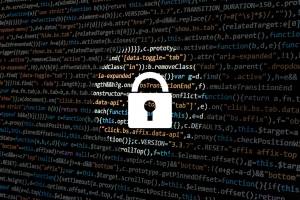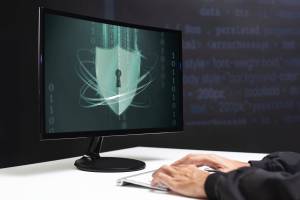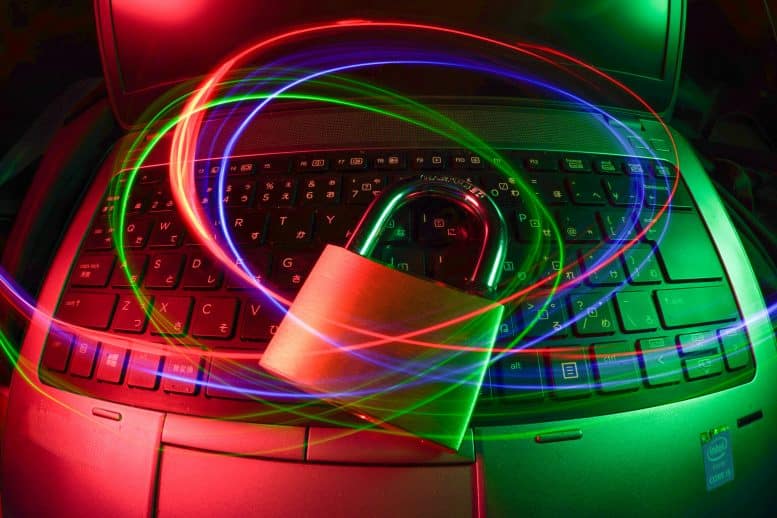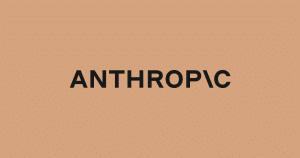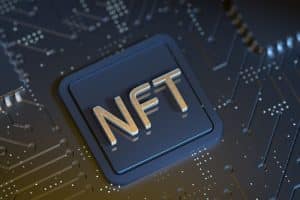Best Lightweight Antivirus – Good Protection for Low-End PCs and Light RAM Usage

Tech Report is one of the oldest hardware, news, and tech review sites on the internet. We write helpful technology guides, unbiased product reviews, and report on the latest tech and crypto news. We maintain editorial independence and consider content quality and factual accuracy to be non-negotiable.
Using a slow computer makes one thing certain – frustration. One of the common culprits is your antivirus software, which may consume too much RAM. That’s enough to keep you up all night, causing you to search for the best lightweight antivirus – those that consume small amounts of memory – available.
But don’t throw your computer out the window just yet. There’s light at the end of the tunnel, and it doesn’t involve heavy-duty antivirus software weighing down your beloved machine.
Picture this instead: a lightweight yet robust antivirus solution. An expert in sidelining digital threats but kind enough to let your PC run fast. Yes, it’s possible, and it’s high time you reclaimed your computer’s speed and capability, with the choices we’re about to show you.
We’ve reviewed and tested six efficient antivirus solutions, helping you pick a potent yet light antivirus software.
-
-
Why Look for a Lightweight Antivirus at All?
Some people are lucky to have the latest high-end devices that can run as many apps as they want without worrying about how much RAM they’re using. But many of us aren’t. This idea is called the digital divide, defined as ‘the uneven distribution of information and communication technologies (ICTs) in society.’Random access memory (RAM) is like the workspace of a device. The more space you have, the more apps you can run simultaneously without experiencing any lag. That’s why some devices experience slowdowns when software consumes too much RAM.
The good news is that the global cloud computing industry is taking the world by storm, enabling servers to handle a computer’s memory and processing. Its promise for security software? We might be able to see the smallest footprint antivirus solutions ever, with them processing scans using the cloud’s RAM instead of your device’s.
However, even without cloud-based capabilities, some of the platforms we tested proved that the best lightweight antivirus solutions can still be enough for people who just want an antivirus that works well without lag.
Top 6 Lightweight Antivirus Software
Here are the results of our research and testing of the lightest antivirus solutions. Note that we used a system running on an Intel Core i5 with DDR3 16 GB RAM on Windows, which meets the minimum device standards for students.
- ESET NOD32 – The Best Lightweight Antivirus Solution
- Panda Security – Excellent Zero-Budget Protection
- Kaspersky– Top Choice for Payments and Cryptocurrency Transactions
- Trend Micro – Cheapest Paid Light Antivirus
- Surfshark – Protects an Unlimited Number of Devices
- TotalAV – The Best Antivirus for Real-Time Threat Protection
1. ESET NOD32 – The Best Lightweight Antivirus Solution
ESET NOD32 easily shined during our testing, as it was the software with the lowest memory usage of 110 MB during a full-system virus scan. Although you’ll see that its idling usage is similar to Panda Security’s, it still uses 40 MB less while scanning. This factor makes NOD32 an optimal example of a lightweight antivirus free from lag-causing features.
Scan, update, and generate reports with NOD32’s dashboard Starting Price (Annually) RAM Usage (Idle) RAM Usage (Scans) $39.99 50 MB 110 MB Before installing it, we were surprised to learn that NOD32 is compatible with a well-updated version of Windows 7 SP. It gets better from there. The platform only needs at least 0.3 GB of RAM as per its system requirements. This, however, lowered when we checked its memory usage when idling and scanning.
Curious about how NOD32 manages to consume only 110 MB? It’s because of its cloud-powered scanning capabilities. As mentioned earlier, this helps antivirus software solutions secure your device without irritating you with slowdowns.
The drawback, however, with cloud computing is that if you don’t have an active internet connection, it’ll take more local resources.
Those looking for freemium features will be delighted to know that – while integrated into NOD32 – the ESET SysInspector, can be used as a standalone diagnostic tool free of charge. It’s able to check your device for the following issues:
- Existence of malware
- Unnecessary processes and services currently active
- Strange or unverified files
- Installed software with potential problems
- Mismatched hardware
- Old device drivers or those that don’t work properly
- An operating system lacking the latest updates
- Damaged registry records
- Unusual internet connections
Meanwhile, NOD32 also comes with the essential features of an antivirus solution, including a ransomware shield, antispyware, software scanners, and security reports. Adding these up means NOD32 belongs among the top mobile antivirus solutions.
Pricing
NOD32’s pricing is the third-highest on our list, and since it’s a standalone antivirus service from ESET, you’ll only get access to other additional features by opting for higher-priced protection plans.
Access VPN and Identity Protection with ESET’s Ultimate plan With NOD32, you can add more devices, charged at $5 annually per device, meaning costs can ramp up for a family. The Premium plan lets you access a password manager and smart home protection. With Ultimate, you can enjoy unlimited VPN and dark web scans for any leaked personal info.
Best of all, you can try all ESET products risk-free with a 30-day free trial.
2. Panda Security – Excellent Zero-Budget Protection
Panda Security is the only provider on our list to provide its antivirus software for free. Yes, you read that right. But free doesn’t mean it’s short on premium features.
Set Firewall, VPN, Wi-Fi, Child, and Safe Browsing settings via the Panda Security Windows app Starting Price (Annually) RAM Usage (Idle) RAM Usage (Scans) Free 50 MB 150 MB Although NOD32 wins with its low memory usage, Panda Security tops it for dark web scans, which come as a freemium feature. Additionally, there’s the free daily 150 MB VPN service (really not much).
These free tools – including internal and external storage scans – are all included with the basic antivirus software for Windows.
Just note that the free antivirus and tools aren’t available for Mac yet. This, along with the absence of online payment options, anti-ransomware, and Wi-Fi protection in the free plan, might make you want to consider the paid plans.
Remember Windows XP? Panda Security is the right tool if you’re still using it for some reason. Aside from being compatible with XP, it also works on Windows Vista and Windows 2000 Professional SP4. Now, that’s what we call an antivirus solution for legacy operating systems.
Note that these outdated systems harbor numerous unpatched vulnerabilities, making them a hacker’s dream. For peace of mind and online safety, consider upgrading to at least Windows 10, which is much safer and lined with modern security features.
Even better, there’s also an Android version of this free antivirus, with privacy audits, battery life optimization, and location tracking.
Several add-ons are also available, similar to what Kaspersky and ESET offer: a password manager, VPN, and parental protection service.Pricing
Generally, Panda Security’s pricing leans to the cheaper side. With just $26.24, you can access secure online shopping and Wi-Fi protection. Meanwhile, child protection is an added feature of the Advanced plan.
Achieve more protection with Panda Security’s Premium plan If you want to take advantage of all the add-ons, opt for the Premium plan, which includes an update manager and 24/7 premium support.
3. Kaspersky – Top Choice for Payments and Cryptocurrency Transactions
Kaspersky is recognized as one of the best antivirus solutions for Windows and Mac. Because its website declares a minimum system requirement of 2 GB RAM, we were surprised by its low memory usage when running scans.
Scan and detect threats and protect your online money with Kaspersky Starting Price (Annually) RAM Usage (Idle) RAM Usage (Scans) $25.99 110 MB 157 MB During testing, we loved that with our permission, Kaspersky could delete excessive and unnecessary system event logs, update logs, cookies, Recycle Bin items, and temp files, all of which compromise a device’s optimal performance.
There’s a bonus here if you want to dominate battles online, as Kaspersky is one of the top antivirus options for PC gaming. This is because of the tool’s Do Not Disturb function, which automatically turns on as you launch your games. You can also activate this function for movies and work apps.
Additionally, Kaspersky is a great option to safeguard online payments and cryptocurrency transactions. This is possible with the following capabilities:
- Crypto Scam Shield, which watches out for shady transactions to guard your Bitcoins.
- Identity Protection Wallet, which stores and protects sensitive documents and credentials, keeping them out of hackers’ reach.
- Data Leak Detector, which Kaspersky sifts through the deep web to see if your info has leaked anywhere online.
- Anti-Stalkerware, which protects you from hidden spyware by sniffing it out and alerting you immediately.
- Secret Vault, a local, unreadable storage spot on your hard drive, keeps your password safe.
- Anti-Cryptojacking is used to protect your digital coins from sneaky miners attempting illegal access.
- Remote Access Alert, which spots any remote system access and immediately warns you, keeping your system safe.
To further assist you, Kaspersky sends you news on recent crypto scams, such as malware and phishing. That’s what we call payment safety without breaking the RAM.
Pricing
For one device, Kaspersky is the second cheapest paid antivirus on this list. As for the plans, you have the option of using only one device, which can be cheaper.
Save more on your Kaspersky subscription with the Premium plan If you need a VPN, you can purchase it as an add-on with Standard for $29.99. However, if you have 2–5 devices and still need a VPN, it’s better to opt for the Plus plan, which turns out to be way lower with more allowable devices.
Meanwhile, the Premium plan unlocks all Kaspersky's features, including parental protection and the password manager.
4. Trend Micro – Cheapest Light Antivirus
Trend Micro is the best budget antivirus. Its starting annual price of $19.95 is still relatively lower than Avast’s $31.19 and Nord’s $60.
Guard online transactions and activity with Trend Micro’s Cloud App Security Starting Price (Annually) RAM Usage (Idle) RAM Usage (Scans) $19.95 112 MB 348 MB While Trend Micro has the highest idle RAM usage it’s not a problem if you have at least 8 GB RAM. We proved this by testing the antivirus on a spare laptop. It only consumed 112 MB in the background and 348–360 MB when running virus scans. We could still edit videos and stream movies without any lag.
It was also comforting that this software only required a minimum of 2 GB RAM, Windows 7 SP1, and a 1 GHz processor. This means users with older machines or budget devices can use Trend Micro's robust antivirus protection without sacrificing performance or flow of operations.
TrendMicro is compatible with Windows 11, too.
Trend Micro might be budget-friendly, but it's big on offerings. Even its basic plan provides top-rated spyware detection, antivirus, and protection for payments and emails. But here's the kicker – it has the advantage of advanced AI learning.
This allows the software to rapidly adapt and combat new online threats, a silver bullet for any antivirus solution on the market.
Pricing
Trend Micro’s basic plan is one of the cheapest in the market. However, we think it would’ve been way better if we could add devices to the Antivirus+Security plan.
Premium Security Suite is the best-value option among Trend Micro’s paid plans Meanwhile, upgrading to Internet Security gives you access to two more devices, parental protection, social media privacy, and system optimization.
Unfortunately, you’ll only get to access Trend Micro on mobile devices by subscribing to the Maximum Security plan, which also has password management.
The Premium Security Suite plan comes with a premium offering: up to $1 million worth of identity fraud insurance. This plan is where you’ll also use Trend Micro’s VPN service.
5. Surfshark – Protects an Unlimited Number of Devices
Surfshark is the second most expensive solution on our list (TotalAV’s starting price is $119.40) and the one with the highest RAM usage when scanning. It still made it onto our list due to its low memory usage when running in the background. On top of that, even its basic plan lets you protect an unlimited number of devices.
As long as they’re compatible, you can access the VPN service and anonymous search functions on any device you want.
Schedule scans and detect threats via the Surfshark dashboard Starting Price (Annually) RAM Usage (Idle) RAM Usage (Scans) $49.08 60–80 MB 430 MB There’s no minimum requirement for RAM storage on Surfshark’s website, which can be confusing. Still, we were surprised by its average idle memory usage of 70 MB, which is relatively close to NOD32’s.
However, its scan usage is close to Avira and Avast's, almost consuming 0.5 GB. While a device with 8 GB could handle this, a lower memory will surely encounter some form of sluggishness with Surfshark’s scan.
Since this platform is mainly a VPN service provider, its basic plan doesn’t include antivirus and anti-spyware features. It only has ad and cookie pop-up blocking capabilities with the VPN.
One of its standout features as an antivirus solution is blocking all webcam access for your devices unless you permit them.
Moreover, Surfshark lets you schedule your scans and set exclusions for files and folders you don’t want to be scanned, preventing false alarms from the antivirus detection.
Pricing
Surfshark Starter is the basic plan, priced at $47.88 a year. You can only access the anti-malware and spyware capabilities via Surfshark One and Surfshark One+.
The antivirus is only available with Surfshark One and Surfshark One+ Upgrading to Surfshark One gives you alerts and reports. The only additional feature you get with Surfshark One+ is the ability to remove your data from company sites and people search tools.
6. TotalAV – The Best Antivirus for Real-Time Threat Protection
TotalAV, while considered a lightweight antivirus solution, is generally considered the top antivirus solution for protecting your devices in real-time. However, it’s not the most lightweight, so it lands the last spot on this list.
While being at the top spot of the best antivirus software, it can safeguard operating systems starting from Windows 7 SP1 and above, all while requiring only 2 GB of RAM.
Run a quick scan via TotalAV’s dashboard Starting Price (Annually) RAM Usage (Idle) RAM Usage (Scans) $119.40 80 MB 250 MB Generally, high-end tools usually consume more memory, but in our findings, TotalAV consumes only 70 MB of RAM when running in the background. On top of that, you can free up some of your RAM with the tool’s capability to find and delete duplicate files, unused apps, and junk temp files.
Although the price is also quite high compared to others on our list, the starting plan already lets you add up to three devices – including iOS and Android – all of which can receive zero-hour malware elimination capabilities.
We also tested its ad-blocking and anti-phishing capabilities by clicking on random websites from randomized Google searches. TotalAV didn’t even let us open any potentially malicious pages. Meanwhile, sites commonly teeming with ads showed fewer, if any, ads at all.
Pricing
As one top-quality product itself, TotalAV is one of the most expensive antivirus solutions, next to Avira’s $263.40/year.
Access TotalAV’s antivirus capabilities with its basic plan The Antivirus Pro plan includes everything you need from an antivirus solution. However, if you need a VPN, opt for the Internet Security plan, priced at $145 yearly. You can add up to six devices and use Total Password with Total Security plan, which is $179 yearly.
The Best Lightweight Antivirus Solutions Compared
To help you fast-track your search for the top antivirus, we've bundled all the important info into a single, comprehensive table. This comparison might just lead you to the best lightweight antivirus solution that fits your needs perfectly.
Best Lightweight Antivirus Starting Price (Annually) RAM Usage (Idle) RAM Usage (Scans) Best For ESET NOD32 $39.99 50 MB 110 MB RAM usage Panda Security Free 50 MB 150 MB Zero-budget protection Kaspersky $25.99 80 MB 250 MB Gaming and online payments TrendMicro $19.95 112 MB 348 MB Cheapest paid option Surfshark $49.08 60-80 MB 430 MB Multiple devices TotalAV $119.40 80 MB 250 MB Real-time protection We found ESET NOD32’s RAM usage to be the lowest, but with 16 GB of memory at our disposal, we can confidently say that every tool on this list is lightweight. We didn’t experience any lagging with any of the tools as we carried out sample tasks we usually do at the office.
What to Look for in a Lightweight Antivirus
It's quite normal for a computer to use about up to 30% of its memory even when idle. Surprise, right? So, what should you seek in a lightweight antivirus?
- Anti-malware, anti-ransomware, and anti-spyware capabilities: These core defense mechanisms fend off various digital threats like trojans and worms, keeping your computer safe.
- VPNs, password managers, and parental protection: The added value of these useful tools propels an antivirus from good to great. They enhance your online experience and safety.
- Protection from online threats: Don’t just bank on local resource safety; a robust antivirus must guard you in the vast online sphere, too.
- Compatibility with older Windows versions: At the very least, an antivirus solution should run smoothly on Windows 7 SP1. This caters to users with older machines.
- Minimal system requirements: Ideally, an antivirus should need only 2 GB RAM or less to function efficiently. This feature is crucial for lightweight software, ensuring less drag on your system.
Keep these in mind as you hunt for your perfect lightweight antivirus. Remember: the goal is a solution that packs a punch without slowing you down.
What Is the Most Resource-Intensive Antivirus?
During our testing of the best lightweight antivirus solutions, we found some that consume high amounts of memory, even in the background. Two of the most notable are the following:
- Norton: 2 GB in idling mode; up to 4 GB when running full scans
- Malwarebytes: 900 MB in idling mode; up to 12 GB when running full scans
While this may be a big problem for devices with lower memory, the higher consumption means that such antivirus solutions can do their jobs efficiently for computers with higher specifications.
Our Other Antivirus Guides
Explore beyond. We've got other guides waiting for you, filled with extensive info about antivirus apps and solutions. Dive in and uncover a world of cyber safety knowledge.
Are Lightweight Antiviruses Worth It?
In the end, it depends on the specifications of your device. If you have limited memory, yes, lightweight antiviruses are worth it. Without slowing down your day-to-day tasks on your computer, these solutions also protect you from identity and security threats.
That's why these solutions are a sound investment. Our thorough testing hails ESET NOD32 as the best lightweight antivirus solution in 2024.
So, rest easy. You're not merely casting your line into the digital sea, hoping to reel in something valuable – you're guaranteed an excellent catch with ESET NOD32.
FAQs
Which is the best lightweight antivirus?
This prize goes to ESET NOD32. Its feather-light design and robust security make it a champion choice for those seeking effective protection without overburdening their system.
What is the lightest antivirus software on RAM?
ESET NOD32’s 50 MB RAM consumption easily makes it the lightest antivirus on this list.
Which antivirus slows down computers the least?
Solutions like Panda Security and NOD32 have cloud-powered scanning capabilities, meaning they won’t take up space in your device’s memory.
What is the best antivirus for low-end PCs?
If we’re talking Windows-XP old, your best bet is Panda Security, which can even support Windows 2000 Professional SP4.
References
Our Editorial Process
The Tech Report editorial policy is centered on providing helpful, accurate content that offers real value to our readers. We only work with experienced writers who have specific knowledge in the topics they cover, including latest developments in technology, online privacy, cryptocurrencies, software, and more. Our editorial policy ensures that each topic is researched and curated by our in-house editors. We maintain rigorous journalistic standards, and every article is 100% written by real authors.Noah Edis Tech Writer
View all posts by Noah EdisNoah Edis is a technical content specialist and systems engineer with a wealth of experience in modern software. When he's not working, you can find him playing competitive dodgeball or programming.
More Antivirus GuidesView all
Latest News
Elon Musk to Move X and SpaceX Headquarters from California to Texas
On Tuesday (July 16), Elon Musk announced that he’s moving the headquarters of his companies X and SpaceX from California to Texas. While SpaceX is moving to Starbase (a company...
AI Startup Anthropic and Menlo Ventures Join Hands to Launch a $100 Million Startup Fund
AI startup Anthropic and its biggest investor Menlo Ventures are launching a $100 million startup fund that will be used to back new startups. Menlo will supply the cash to invest...
REGULATION & HIGH RISK INVESTMENT WARNING: Trading Forex, CFDs and Cryptocurrencies is highly speculative, carries a level of risk and may not be suitable for all investors. You may lose some or all of your invested capital, therefore you should not speculate with capital that you cannot afford to lose. The content on this site should not be considered investment advice. Investing is speculative. When investing your capital is at risk. Please note that we do receive advertising fees for directing users to open an account with the brokers/advertisers and/or for driving traffic to the advertiser website.
Crypto promotions on this site do not comply with the UK Financial Promotions Regime and is not intended for UK consumers.
© Copyright 2024 The Tech Report Inc. All Rights Reserved.
Scroll Up













